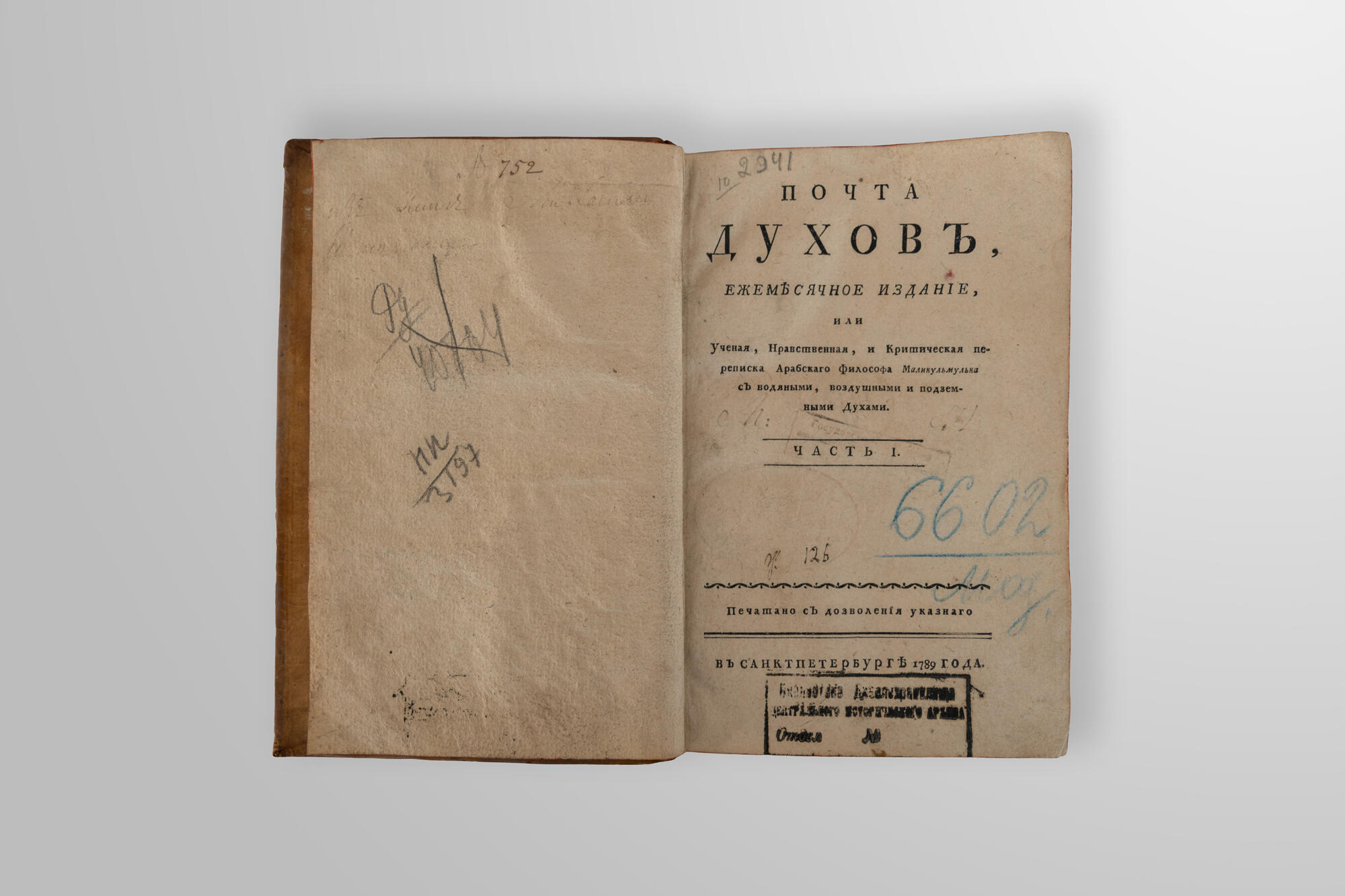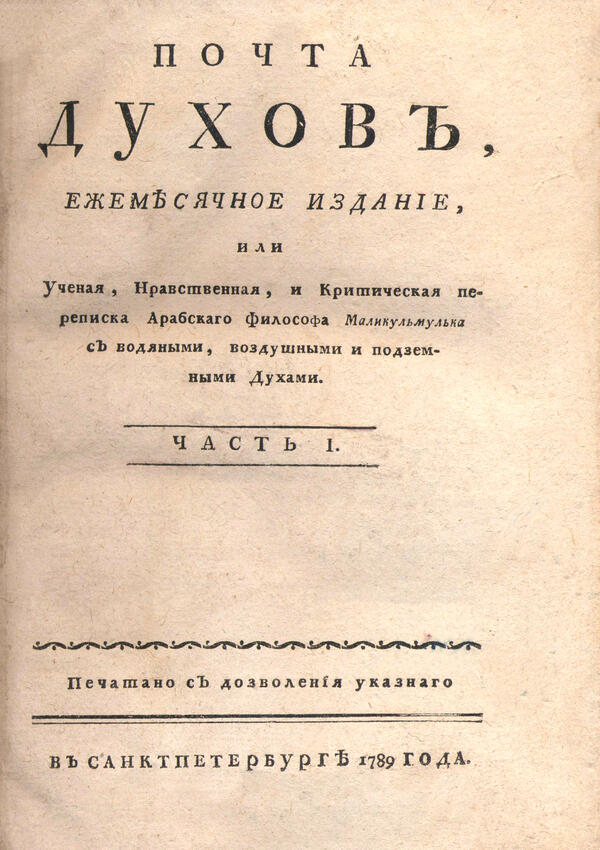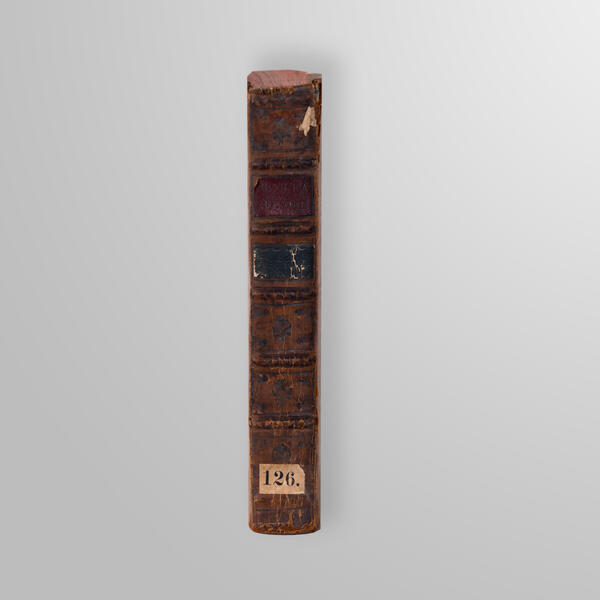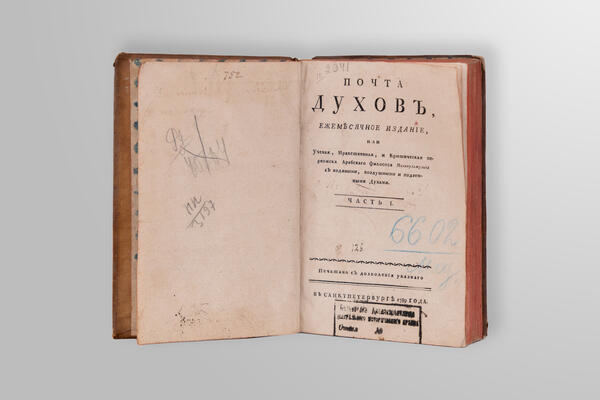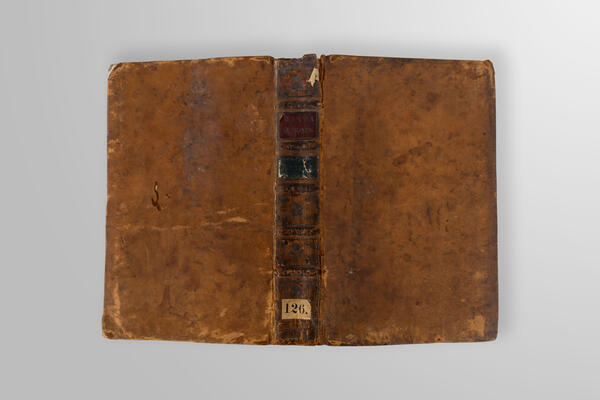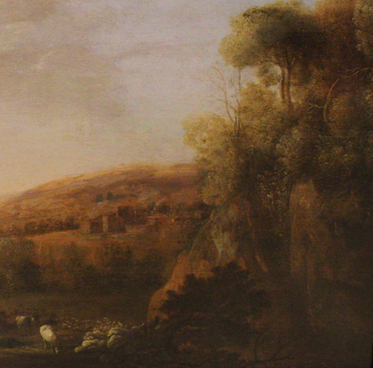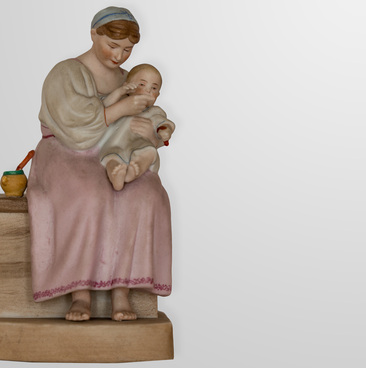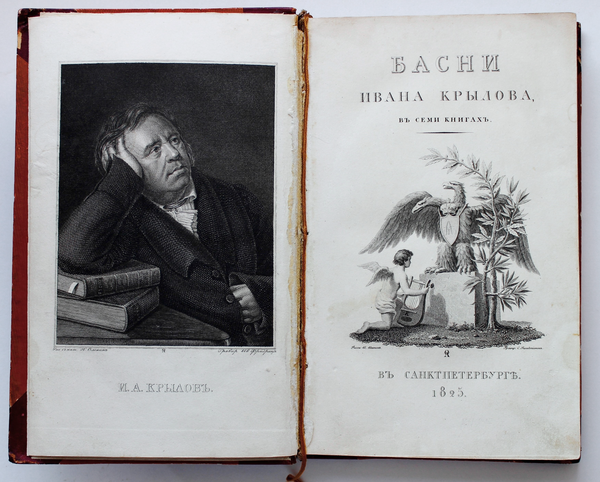Pochta Dukhov (Spirits’ Mail) was a magazine published in St. Petersburg. Its only author, editor, and publisher was one and the same person — Ivan Krylov. Starting from January 1789, eight large issues of the magazine were published. Four more issues were planned but did not appear in print. The magazine had only 79 subscribers, and, according to the literature scholar Nikolay Stepanov, “Catherine the Great considered [Pochta Dukhov] to be dangerous propaganda” and tried to get rid of the “rebellious” publication.
In the history of journalism, Pochta Dukhov is known as a satirical magazine. However, taking into account that it was created by a single author, had a coherent structure, and featured fantastic characters, some researchers also referred to this work as a satirical review, a collection of satirical articles, and even a satirical, enlightening, and philosophical novel, based on a picaresque novel (according to Yuliya Skripnikova).
Ivan Krylov described the history of his magazine as a legend: apparently, an Arabian wizard called Malikulmulk once appeared to him in a time of need and offered him a deal — to pay him in exchange for publishing the correspondence. Despite the fairytale setting, the articles were dedicated to the acute problems of Krylov’s time: the culture and power of serfdom, the moral decay of the upper classes, and economic issues (Krylov argued against the dominance of imported goods). The magazine also featured polemics with other writers, including Yakov Knyazhnin and Alexander Radishchev.
Interestingly, Krylov mostly criticized Radishchev, who wrote for Beseduyushchy Grazhdanin (The Talking Citizen), for his form of expression. Krylov preferred satire, while Radishchev opted for moralizing. Their ideas, on the other hand, were quite similar. Both of them agreed that a person of humble origin, honestly performing their duty, was “much more worthy of the title of an honest person” than a morally bankrupt nobleman.
In 1802, Pochta Dukhov was republished in four
parts by Fyodor Sveshnikov. In the new edition, the preface was changed, the
table of contents was shortened, and the articles were not divided into monthly
issues. The careless reduction and rephrasing were apparently caused by the
need to make the work shorter and were conducted without consulting with Ivan
Krylov.
